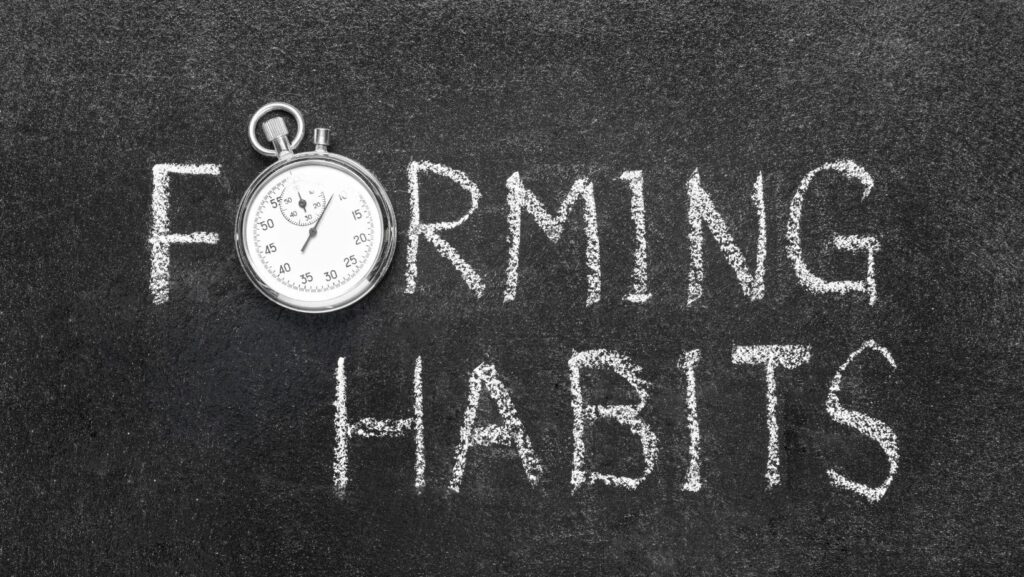Building lasting habits can transform lives, but knowing where to start can feel overwhelming. With countless resources available, finding the right guidance is crucial. The best books on habit formation offer insights into the psychology behind habits and practical strategies to implement change.
These books not only inspire but also provide actionable steps to create and maintain positive habits. Whether someone wants to boost productivity, improve health, or cultivate mindfulness, the right literature can serve as a roadmap. By exploring these top picks, readers can unlock the secrets to successful habit formation and take meaningful strides toward their goals.
Best Books on Habit Formation
- “”Atomic Habits”” by James Clear
This book breaks down the process of habit formation into manageable steps. Clear emphasizes the power of small changes and how they compound over time. He introduces the concept of the “”1% rule,”” demonstrating how tiny improvements lead to significant results. This resource offers practical strategies and examples to help readers build better habits. - “”The Power of Habit”” by Charles Duhigg
Duhigg explores the science behind habits, detailing the habit loop: cue, routine, and reward. He shares compelling stories and case studies, illustrating how habits shape personal and professional lives. The insights provided help readers understand how to transform their habits and the habits of organizations. - “”Mindset: The New Psychology of Success”” by Carol S. Dweck
Dweck presents the concept of a growth mindset and its impact on achieving goals. By fostering a belief in one’s ability to change, readers learn to embrace challenges and develop resilience. This mindset serves as a foundation for effective habit formation and personal growth. - “”Tiny Habits: The Small Changes That Change Everything”” by BJ Fogg
Fogg outlines a simple framework for building habits through tiny actions that lead to significant change. He stresses the importance of simplicity in habit formation, encouraging readers to start small and celebrate successes. The method promotes gradual and sustainable change. - “”The 7 Habits of Highly Effective People”” by Stephen R. Covey
Covey’s classic work addresses not just habit formation, but the principles underlying personal effectiveness. Each habit promotes a proactive approach to life. The emphasis on aligning actions with values guides readers in creating lasting and meaningful habits. - “”Better Than Before: What I Learned About Making and Breaking Habits”” by Gretchen Rubin
Rubin examines how different personality types impact habit formation. She provides a framework for readers to understand their tendencies and design strategies that align with their personality. The book offers targeted advice on how to cultivate positive habits and break negative ones. - “”The Compound Effect”” by Darren Hardy
Hardy discusses the principle of compounding in personal development and habit formation. By making small, consistent choices, individuals can achieve extraordinary results over time. The book encourages readers to commit to long-term success through daily habits.
Importance of Habit Formation
Habit formation plays a crucial role in personal development and overall well-being. Understanding the mechanics of habits enables individuals to make meaningful changes in their lives.
Understanding Habits
Habits consist of cues, routines, and rewards. Cues trigger a behavior, routines are the actions taken, and rewards reinforce those actions. By identifying these elements, individuals can reprogram their behaviors to establish effective habits. Research shows that habits constitute approximately 40% of daily actions, making them integral to overall behavior (Duhigg, 2012). Recognizing the power of habit loops allows for intentional change, fostering a proactive approach in habit-building endeavors.
Benefits of Good Habits
Good habits lead to enhanced productivity, improved health, and elevated well-being. They simplify decision-making, reduce stress, and create a structured environment. For instance, individuals who maintain consistent exercise habits report increased energy levels and better mental health. Studies suggest that establishing positive habits can lead to a 20% improvement in productivity (Duhigg, 2012). Additionally, good habits contribute to long-term success by aligning daily actions with personal goals, ultimately enabling a more fulfilling life.
Top Recommendations
bBest books on habit formation offer valuable guidance on habit formation, providing insights and practical strategies. Here are some top recommendations.
Book 1: The Power of Habit by Charles Duhigg
Charles Duhigg’s “”The Power of Habit”” dives into the science of habits, explaining how they function through the habit loop: cue, routine, and reward. Duhigg uses case studies to illustrate how understanding this loop can transform personal and organizational habits. The book emphasizes that by identifying cues and reprogramming routines, individuals can cultivate better habits and eliminate detrimental ones.
Book 2: Atomic Habits by James Clear
James Clear’s “”Atomic Habits”” presents a comprehensive framework for building effective habits through small, incremental changes. Clear articulates the importance of the 1% improvement philosophy, illustrating how minor adjustments lead to significant outcomes over time. The book provides actionable strategies for habit stacking, tracking progress, and making environmental changes that support sustainable behaviors.
Book 3: Tiny Habits by BJ Fogg
In “”Tiny Habits,”” BJ Fogg advocates for starting with small, manageable behaviors to create lasting change. Fogg introduces the formula B=MAP, which stands for Behavior happens when Motivation, Ability, and Prompt converge. He offers practical techniques for integrating tiny habits into daily routines, demonstrating how even the smallest changes can accumulate to produce significant shifts in behavior over time.
How to Choose the Right Book
Selecting the right book on habit formation requires clarity on personal goals. Individuals often achieve better results when their choices align with their specific needs and aspirations.
Consider Your Goals
Identify specific objectives, such as enhancing productivity, improving health, or fostering mindfulness. Analyze the primary focus of each book to determine its relevance. For instance, if one aims to build a productivity framework, “”Atomic Habits”” by James Clear offers practical strategies. Alternatively, “”Tiny Habits”” by BJ Fogg caters to those seeking to integrate small behaviors for lasting impact. Establishing clear intentions guides readers to the most suitable resources, maximizing the chances for meaningful habit development.
Reader Reviews and Ratings
Examine reviews and ratings to gauge the effectiveness of each book. Trustworthy platforms like Goodreads and Amazon provide valuable insights from fellow readers. High ratings often indicate universally recognized strategies and relatable content, while constructive criticism can highlight limitations or niche focuses. Consider both the star ratings and detailed comments for a balanced perspective, ensuring informed decisions based on real experiences.
Meaningful Changes in Lives
Exploring the best books on habit formation can empower individuals to make meaningful changes in their lives. These resources offer valuable insights into the mechanics of habits and practical strategies for implementation. By understanding the psychology behind habits and applying the principles outlined in these books, readers can cultivate effective routines that align with their personal goals.
Whether it’s improving productivity or enhancing overall well-being, the right book can serve as a catalyst for transformation. Embracing the journey of habit formation not only fosters personal growth but also paves the way for a more fulfilling life. With the right guidance, anyone can take the first step toward lasting change.



